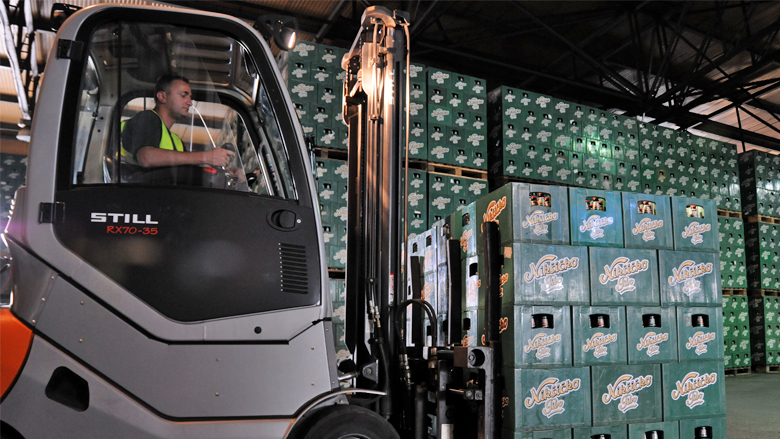Washington, 25 June 2018: Trebjesa is the leading brewery in Montenegro. The company produces four different lager beers under the brand name "Nik": Nikšićko pivo, Nik Gold, Nik Cool, and Nikšićko tamno. Nikšićko pivo is the most popular beer in the Montenegro. It is also exported and has grown in popularity in the region (Croatia, Slovenia, Albania and Bosnia and Herzegovina) and worldwide (France, Germany, Switzerland, Canada and England). Further, the Trebjesa brewery also bottles imported beer at its facility to sell on the domestic market in Montenegro.
The Montenegro Customs Administration used to consider excise goods, like beer, high-risk products. This was because some shippers declare a lower value or quantity of goods to reduce customs duties. For the Customs Administration, this posed a risk of a significant loss of revenue. Like many other countries, it mandated 100% inspection of these imported goods. This high level of control caused serious delays for businesses since the examination of goods could take several hours. While at the same time, the detection rate of irregularities – such as undervaluation, under declaration of quantity, misclassification - was very low.
“Companies involved in legitimate business expect customs authorities to do two things. To combat the grey economy in illegal goods trade and to reduce the frequency of controls, as both factors can negatively impact the time and costs of doing business,” said Ljiljana Filipovic, Vice President, the Chamber of Economy of Montenegro.
Complicating matters, business hours for the Montenegro Customs Administration were 7:00 AM to 3:00 PM. With every inspection taking up to seven hours, shipments arriving towards the end of the working day had to wait until the next business day to be processed. For goods arriving after 3:00 PM on a Friday, clearance would be delayed even further - to Monday morning. This entire process led to unpredictable delivery times and frustrated customers.
“The former operating model was restrictive and expensive. If our trucks reached the terminal before 8:00 AM, they would only be cleared around 3:00 PM, which meant we lost a full working day. The brewery was then faced with two options: send the trucks back to the warehouse and wait for the next working day to deliver to customers, or pay additional (double) daily allowances to unload the goods. If the trucks arrived after 8:00 AM, they would be cleared the next business day, which meant handling fees were much higher,” said Vladimir Gardasevic, Transport and Customer Service Manager, Trebjesa.
A new risk-based inspection system
To streamline their inspection procedures and find the right formula for the clearance of goods, the Montenegro Customs Administration asked the World Bank Group’s Western Balkans Trade Logistics Project, a regional program funded by the European Commission, for assistance in establishing a risk-based approach to customs. This support was subsequently continued by the Trade Facilitation Support Program (TFSP), a global program that provides support for countries seeking assistance in aligning their trade practices with the World Trade Organization Trade Facilitation Agreement.
The Project supported the Customs Administration in establishing a five-step process for identifying and addressing risks:
Step 1: Risk identification: What are all the potential risks associated with excise goods?
Step 2: Risk analysis: What is the cause, level, and source of each of these risks?
Step 3: Risk evaluation: How frequent or likely are these risks? How would they impact revenue?
Step 4: Risk treatment: Which risks can be tolerated, and which need to be addressed?
Step 5: Risk monitoring and review: Over time, does the level of these risks change? How should policies be adjusted?
By using this four-step processes, a new risk management electronic system and appropriate records of compliance, the Customs Administration could identify in advance which cargo warranted inspection and which could be automatically cleared. When evaluating risk, the Customs Administration considered factors including the product classification, the country of origin, the value of the goods, information about the trader, and the mode of transportation, among others.

